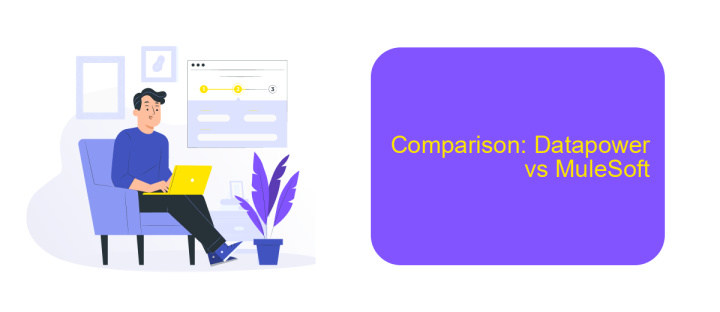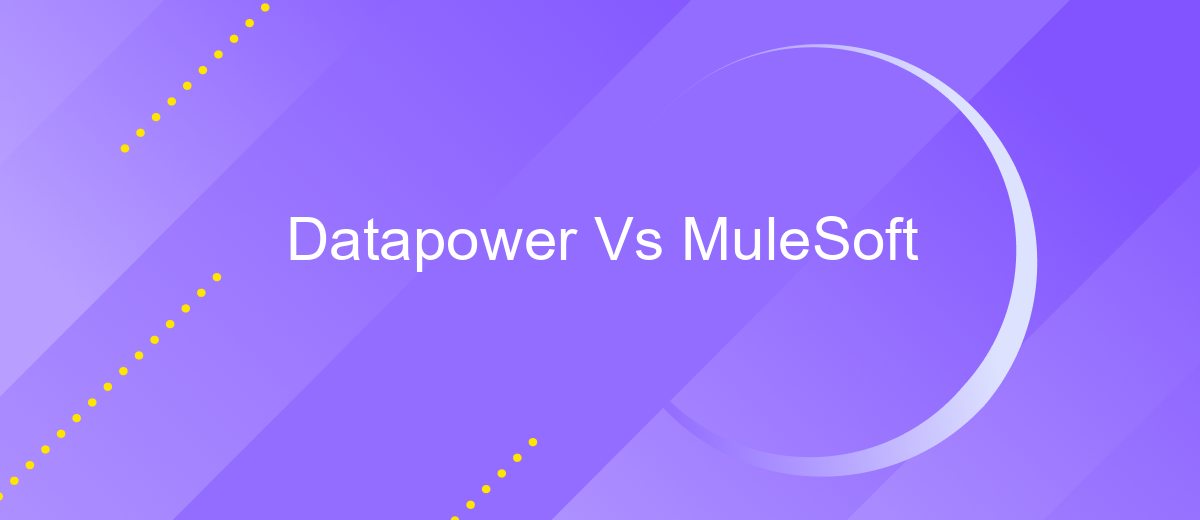Datapower Vs MuleSoft
In today's rapidly evolving digital landscape, businesses rely on robust integration platforms to streamline operations and enhance connectivity. Two leading solutions in this domain are IBM DataPower and MuleSoft. This article delves into a comparative analysis of these powerful tools, examining their features, strengths, and ideal use cases to help organizations make informed decisions for their integration needs.
Introduction
In the rapidly evolving landscape of enterprise integration, businesses often find themselves evaluating different middleware solutions to streamline their operations. Two prominent players in this space are DataPower and MuleSoft, each offering unique capabilities and benefits. Understanding the strengths and limitations of these platforms is crucial for making an informed decision that aligns with your organizational needs.
- DataPower: Known for its robust security features and high performance, particularly in handling XML and JSON data.
- MuleSoft: Renowned for its flexibility and ease of use, offering a wide range of connectors and tools for seamless API management.
- ApiX-Drive: A versatile service that simplifies the integration process, enabling businesses to connect various applications without extensive coding.
Choosing the right integration platform involves assessing your specific requirements, such as security, scalability, and ease of implementation. While DataPower excels in secure, high-performance environments, MuleSoft offers a more flexible, user-friendly approach. Additionally, services like ApiX-Drive can further enhance your integration strategy by providing easy-to-use tools for connecting diverse applications. This comparison aims to provide insights that will help you make the best choice for your enterprise.
Datapower Overview

IBM DataPower is a robust, enterprise-grade gateway solution designed to simplify and secure the integration of various applications across different environments. It offers a comprehensive set of features, including security, traffic management, and API management, making it an ideal choice for organizations looking to streamline their IT infrastructure. DataPower supports multiple protocols and standards, ensuring seamless connectivity between disparate systems, whether they are on-premises, in the cloud, or in hybrid environments.
One of the standout features of DataPower is its ability to provide advanced security measures, such as encryption, authentication, and threat protection, which are essential for safeguarding sensitive data. Additionally, DataPower's intuitive interface and extensive documentation make it easier for IT teams to configure and manage integrations. For those seeking a more streamlined approach to integration, services like ApiX-Drive can complement DataPower by offering automated workflows and real-time data synchronization, further enhancing the efficiency and reliability of your integration processes.
MuleSoft Overview

MuleSoft is a leading integration platform for connecting applications, data, and devices in the cloud and on-premises. It provides a comprehensive solution for API-led connectivity, enabling organizations to unlock and unify data across various systems. MuleSoft's Anypoint Platform offers a range of tools for designing, building, and managing APIs and integrations, streamlining the process of connecting disparate technologies.
- Anypoint Design Center: A web-based interface for designing APIs and integrations using a visual flow designer.
- Anypoint Exchange: A marketplace for discovering, sharing, and reusing APIs, connectors, and templates.
- Anypoint Management Center: A suite of tools for managing, monitoring, and securing APIs and integrations.
- Anypoint Connectors: Pre-built connectors for integrating with popular applications and systems.
By leveraging MuleSoft, businesses can accelerate their digital transformation initiatives and improve operational efficiency. Additionally, services like ApiX-Drive can complement MuleSoft by offering easy-to-use, no-code integration solutions, enabling even non-technical users to automate workflows and connect various applications seamlessly. This combination ensures that organizations can achieve robust and scalable integration capabilities with minimal effort.
Comparison: Datapower vs MuleSoft

When comparing Datapower and MuleSoft, it's crucial to understand their core functionalities and how they cater to different integration needs. Datapower is an IBM product designed primarily for security, integration, and optimization of web, API, SOA, B2B, and cloud workloads. MuleSoft, on the other hand, is a comprehensive integration platform that facilitates the connection of applications, data, and devices with APIs.
Datapower excels in providing robust security features, making it a preferred choice for enterprises with stringent security requirements. MuleSoft, however, is renowned for its flexibility and ease of use, enabling businesses to create seamless integrations across various systems with minimal effort.
- Security: Datapower offers advanced security features, including threat protection and encryption.
- Ease of Use: MuleSoft's Anypoint Platform is user-friendly, allowing for quicker integration setup.
- Flexibility: MuleSoft supports a wide range of connectors and integration patterns.
- Performance: Datapower is optimized for high-performance processing of XML and JSON data.
For businesses looking to streamline their integration processes, tools like ApiX-Drive can further simplify the connection of various applications and services. ApiX-Drive offers an intuitive interface and a wide range of connectors, making it an excellent complement to both Datapower and MuleSoft, depending on the specific needs and existing infrastructure of the organization.
Conclusion
In conclusion, both DataPower and MuleSoft offer robust solutions for integration needs, each with its own set of strengths. DataPower excels in providing high security and performance for enterprise-grade applications, making it a suitable choice for organizations with stringent security requirements. On the other hand, MuleSoft stands out for its flexibility and ease of use, particularly in cloud-based and hybrid environments, which makes it ideal for businesses looking to streamline their integration processes.
For those looking to further enhance their integration capabilities, services like ApiX-Drive can be invaluable. ApiX-Drive simplifies the process of connecting various applications and automating workflows, thus complementing the functionalities of both DataPower and MuleSoft. By leveraging such tools, organizations can achieve seamless integration, improved efficiency, and better data management, thereby driving business growth and innovation.
- Automate the work of an online store or landing
- Empower through integration
- Don't spend money on programmers and integrators
- Save time by automating routine tasks
FAQ
What are the primary differences between DataPower and MuleSoft?
Which platform is better for API management?
How do both platforms handle integration with legacy systems?
What are the deployment options for DataPower and MuleSoft?
Can I automate and streamline integrations using third-party services?
Apix-Drive will help optimize business processes, save you from a lot of routine tasks and unnecessary costs for automation, attracting additional specialists. Try setting up a free test connection with ApiX-Drive and see for yourself. Now you have to think about where to invest the freed time and money!


